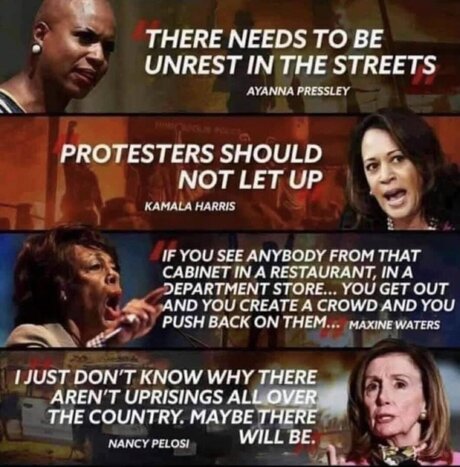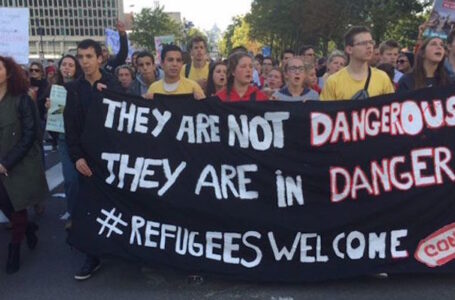Islamists Still Seek Power a Decade After Arab Spring Revolutions

by Hany Ghoraba
Special to IPT News
January 25, 2021
Ten years have passed since Mohamed Bouazizi, a 26-year-old produce vendor, self-immolated to protest harassment from Tunisian government officials. His death sparked widespread demonstrations that ultimately toppled governments in Tunisia and Egypt in a wave called the “Arab Spring.”
Largely because they were the best organized, Islamist groups like the Muslim Brotherhood were the immediate beneficiaries of the turmoil. But the ensuing decade has seen the movement endure serious setbacks. Despite those losses, Islamists still aspire to seize power.
Here’s a look at where Islamists stand in four key countries:
Egypt
Millions of people took to the street demanding Egypt’s Islamist President Mohamed Morsi’s ouster in June 2013. His organization, the Muslim Brotherhood, turned to terrorism after that, especially between 2013-2019, when an unprecedented wave of attacks killed thousands of Egyptian soldiers, police officers and civilians.
The Egyptian government declared the Muslim Brotherhood a terrorist group in December 2013 following the bombing of a police headquarters in Mansoura, north of Cairo, which killed 16 people and injured more than 100 others.
The war on the Egyptian state was not only executed through terrorism, but also through media and activism. Joined by a few Egyptian celebrities, the Muslim Brotherhood organized events in the United States such as Egypt Advocacy Day in March 2019 under the slogan of “to uphold the democratic principle of peaceful transfer of power.” U.S. Rep. Tom Malinowski, D-N.J., spoke at the event.
A key organizer, Mohamed Soltan, is a Muslim Brotherhood activist and the son of convicted terrorist Salah Soltan. In August 2013, Salah Soltan commanded the “Rabaa headquarters” inside the Muslim Brotherhood’s armed Cairo encampment following Morsi’s ouster. Salah Soltan was arrested the next month at the Cairo airport while trying to flee the country. At the Rabaa encampment, Islamist protesters formed a “war council” and shouted “no more peaceful demonstrations.” An estimated 90 churches were burned across Egypt and violence targeting Egypt’s Coptic Christian minority followed the dispersal of the Rabaa encampment.
Some Brotherhood outlets, including the Turkey-based Mekamleen TV network, directly incited the killing of the Egyptian soldiers.
“Today’s movement is a positive one, cut [Egyptian President Abdel Fattah al-Sisi] off, kill his officers, I am saying it live on air, kill his officers, I want to say to every officer’s wife “Your husband will be killed” maybe not today but tomorrow yes or maybe day after your husband will be killed no matter what,” anchor Mohamed Nasser said in 2015.
The Muslim Brotherhood has repeatedly called for new revolutions since 2013. In 2016, it called for a new revolution against President Abdulfattah al-Sisi under the slogan “The Revolution Unite Us.”
“We will not yield until we put the noose around the necks of the tyrants among you,” said Muslim Brotherhood Talaat Fahmy. “As for our mistakes we treated you as Egyptians but we found out that you are Zionist and that you follow the conspiracies of enemies.” An ill-fated October 2019 uprising saw a few thousand of mostly Muslim Brotherhood protest before being arrested for rioting and unlicensed demonstrations.
Acting Muslim Brotherhood leader Mahmoud Ezzat was arrested last summer after years as a fugitive. Investigators say they found plans in his home for terrorist attacks inside the country. He also had mobile phones and a laptop with coded applications which were used to communicate with Brotherhood members, a Ministry of Interior statement said.
It became customary for the Muslim Brotherhood to use social media hashtags to call for a new revolution every January to mark the Jan. 25, 2011 Arab Spring revolution which ousted the late President Hosni Mubarak.
“The ‘comrades of January’ live in difficult conditions between exile, prisons and pressures, “but despite all this, they are still loyal to their revolution, and when they have the opportunity, they will return to it,” Ahmed al-Hofi, spokesman for the Muslim Brotherhood’s Freedom and Justice Party, recently said.
Tunisia
In Tunisia where the Arab revolutions started, the Muslim Brotherhood-affiliated Ennahda has seen its political fortunes rise and fall..
Ennahda won control of Tunisia’s parliament after 2011’s Jasmine Revolution, only to be voted out in 2014. Ennahda rapidly lost its popularity, and secularist Beji Caid Essebsi was elected president. Ennahda’s support waned in the face of economic hardships, extremist growth and terrorism in the country. Ennhada was suspected of carrying out and covering the assassinations of party rivals.
Ennahda rebounded in 2019 parliamentary elections, with a major victory that paved the way for founder Rachid Ghannouchi to become the speaker of the parliament. Ghannouchi’s ties to Islamist leaders, including Turkish President Recep Tayyip Erdogan, have invoked several motions of no-confidence and impeachment.
Members of the Free Constitutional Party collected signatures last week to file a motion to impeach Ghannouchi.
Ghannouchi remaining at the helm of parliament “has become a threat to the national security of the country that must be put to an end,” the Constitutional Party said.
Ennahda has yet to live up to its promises to improve the lives of Tunisians as the economy is on the verge of bankruptcy.
These conditions led a revival of violent protests across the country with more than 600 hundred protesters arrested last week. “Down with the Brotherhood’s party,” they chanted. “Ghannouchi,” others said, “you are blood-spilling murderer.”
But the violence, including attempts to torch a police headquarters, led MP Abir Moussa to accuse Ennhada of responsibility. Moussa’s party headquarters in the city of Sousse were vandalized in the riots.
The protests are “a conspiracy by the Brotherhood to make Ghannouchi a president for the country,” said Moussa. She has accused Ghannouchi and Ennahda of plotting a coup against President Kais Saied.
Saudi Arabia
One of the biggest blows to the Muslim Brotherhood was a 2014 Saudi Arabian ban of the group. Saudi Arabia was once a safe haven for the Brotherhood, especially during the 1960s, with relations that can be traced back to the group’s founder Hassan al-Banna. In November, the ultra-conservative Saudi Council of Scholars described the group as a “terrorist entity” that doesn’t represent Islam and warned Muslims against joining the group or sympathizing with it.
Saudi Arabian dissidents, including Muslim Brotherhood activists, last September formed The National Assembly Party (NAAS). While the party charter calls for democratic practices and freedom of speech, its leaders’ affiliations contradict these tenets.
Among the party’s founders is Abdullah Alodah, an academic and son of Muslim Brotherhood-affiliated radical priest Salman Alodah. Salman Alodah was one of the most influential Saudi clerics and a proponent of Islamism and jihad in the 1990s. He was arrested as part of a Saudi Arabian purge against Islamists and Muslim Brotherhood supporters. His Twitter account has over 13 million followers.
Another founder, Saied Alghamdi, also is a Muslim Brotherhood cleric. He resides in Qatar and is a frequent guest on Al Jazeera religious programs. A third founder, Yahya Assiri, is known for his affiliations with the Muslim Brotherhood and a defender of its causes.
The party founders defend Islamist detainees in Saudi prisons. The Saudi Arabian government detained a number of Islamists, many of whom are radical ones such as Islamist scholar Abdel Aziz Al Fawzan and the founder of the Resalat Al Islam “Message of Islam” TV network. In 2005, Fawzan called for “positive hatred” of Christians. “Someone who denies Allah, worships Christ, son of Mary, and claims that God is one third of a trinity – so you like these things he says and does? Don’t you hate the faith of such a polytheist who says God is one third of a trinity, or who worships Christ, son of Mary?” said Fawzan.
“Someone who permits and commits fornication – as is the case in Western countries, where fornication is permitted and not considered a problem – don’t you hate this?” said Fawza. “Whoever says, “I don’t hate him, is not a Muslim.”
Sudan
Sudan, which had three decades of Islamist rule, has moved in a decidedly different direction after popular uprisings in 2019 ousted President Omar Al Bashir. Sudan issued a secular constitution, and is cooperating with Egypt in fighting Islamists. In response, the Sudanese Muslim Brotherhood formed the State of Law and Development Party, which calls for the application of Sharia law in the country. Party leader Mohamed Al-Jazouli was arrested by Sudanese authorities last July for spreading news about at attempted coup d’etat to take place in the country in the same month. The party led by Al-Jazouli opposed Sudan’s new laws to abolish sharia laws that allowed public floggings and forbade the drinking of alcohol by non-Muslims. The party considered that the amendments constitute a “war on morals.”
Earlier this month, Sudan moved to normalize relations with Israel, an inconceivable step if Islamists still enjoyed control. And in exchange for making peace, the United States took Sudan off its list of state sponsors of terrorism, where it had been since 1993. The steps also are expected to help the country pull itself out of a deep economic crisis.
At this point, Turkey, Iran and Qatar are the only countries in the Middle East still providing Islamists with unyielding financial, political and military support. Turkey has hosted a number of pro-Brotherhood organizations including the Egyptian Revolutionary Council ERC in Istanbul.
After initial gains, Islamists have lost much more ground in the decade after the first wave of Arab Spring revolutions. Now they are banned and hunted in most Arab countries that they once believed they can control. However, that didn’t deter groups such as the Muslim Brotherhood from attempting to regain some control by all means necessary.
Hany Ghoraba is an Egyptian writer, political and counter-terrorism analyst at Al Ahram Weekly, author of Egypt’s Arab Spring: The Long and Winding Road to Democracy and a regular contributor to the BBC.
Copyright © 2020. Investigative Project on Terrorism. All rights reserved.
……

#####################















